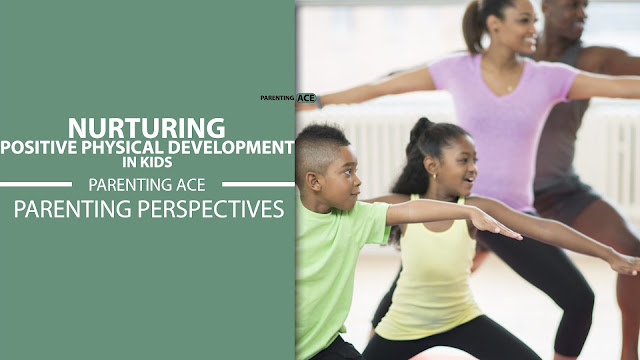Fostering Positive Body Image: Nurturing Healthy Physical Development in Children
Welcome to our latest blog post where we delve into the vital topic of fostering positive body image in children within the realm of parenting. In today's society, where unrealistic beauty standards and societal pressures abound, instilling a healthy sense of self-esteem and body acceptance in our children has never been more crucial. Join us as we explore the importance of nurturing a positive body image, discuss the impact it has on children's development, and provide actionable strategies for parents to support their child's journey towards embracing their unique selves with confidence and pride.
 |
| Promoting Healthy Body Image in Children |
In the journey of parenting, one of the critical aspects to consider is fostering a positive body image in children. Physical development plays a pivotal role in shaping a child's sense of self-worth and overall well-being. However, societal pressures, unrealistic beauty standards, and media influence can often distort children's perceptions of their bodies. In this article, we delve into the importance of promoting a healthy body image in children, explore strategies for nurturing positive self-esteem, and discuss how parents can contribute to their child's physical development within the context of positive parenting.
Understanding Body Image
Body image encompasses how individuals perceive, think, and feel about their bodies. For children, body image is influenced by various factors, including genetics, peer interactions, family environment, and societal influences. From a young age, children absorb messages from their surroundings, including media portrayals, societal expectations, and comments from peers and adults, which can significantly impact their body image.
The Impact of Positive Body Image
A positive body image is essential for children's mental and emotional well-being. When children feel confident and comfortable in their bodies, they are more likely to engage in physical activities, maintain healthy habits, and develop strong self-esteem. Conversely, negative body image can lead to feelings of inadequacy, low self-esteem, and unhealthy behaviors such as disordered eating or excessive exercise.
Strategies for Fostering Positive Body Image
- Encourage Healthy Habits: Focus on promoting healthy behaviors rather than appearance. Emphasize the importance of nutritious eating, regular exercise, and sufficient sleep for overall well-being, rather than weight or size.
- Model Positive Self-Talk: Be mindful of your own language and attitudes towards your body. Avoid making negative comments about your appearance or engaging in self-criticism, as children often mimic parental behavior.
- Celebrate Diversity: Teach children to appreciate and celebrate diversity in body shapes, sizes, and abilities. Encourage them to recognize and value the unique characteristics of themselves and others.
- Provide Positive Reinforcement: Offer praise and encouragement for efforts and achievements unrelated to appearance. Acknowledge their talents, strengths, and character traits to build confidence and self-esteem.
- Limit Exposure to Negative Influences: Monitor and regulate your child's exposure to media and advertising that promote unrealistic beauty standards or perpetuate body shaming. Encourage critical thinking and media literacy skills to help them navigate harmful messages.
- Foster Open Communication: Create a supportive environment where children feel comfortable discussing their feelings, concerns, and questions about their bodies. Listen attentively, validate their experiences, and provide guidance and reassurance when needed.
In the journey of parenting, fostering a positive body image is a crucial aspect of promoting healthy physical development and overall well-being in children. By cultivating a supportive and empowering environment, parents can help their children develop resilience, confidence, and a healthy relationship with their bodies. Through mindful guidance, positive reinforcement, and open communication, parents play a pivotal role in nurturing positive body image and empowering their children to embrace their unique selves.




